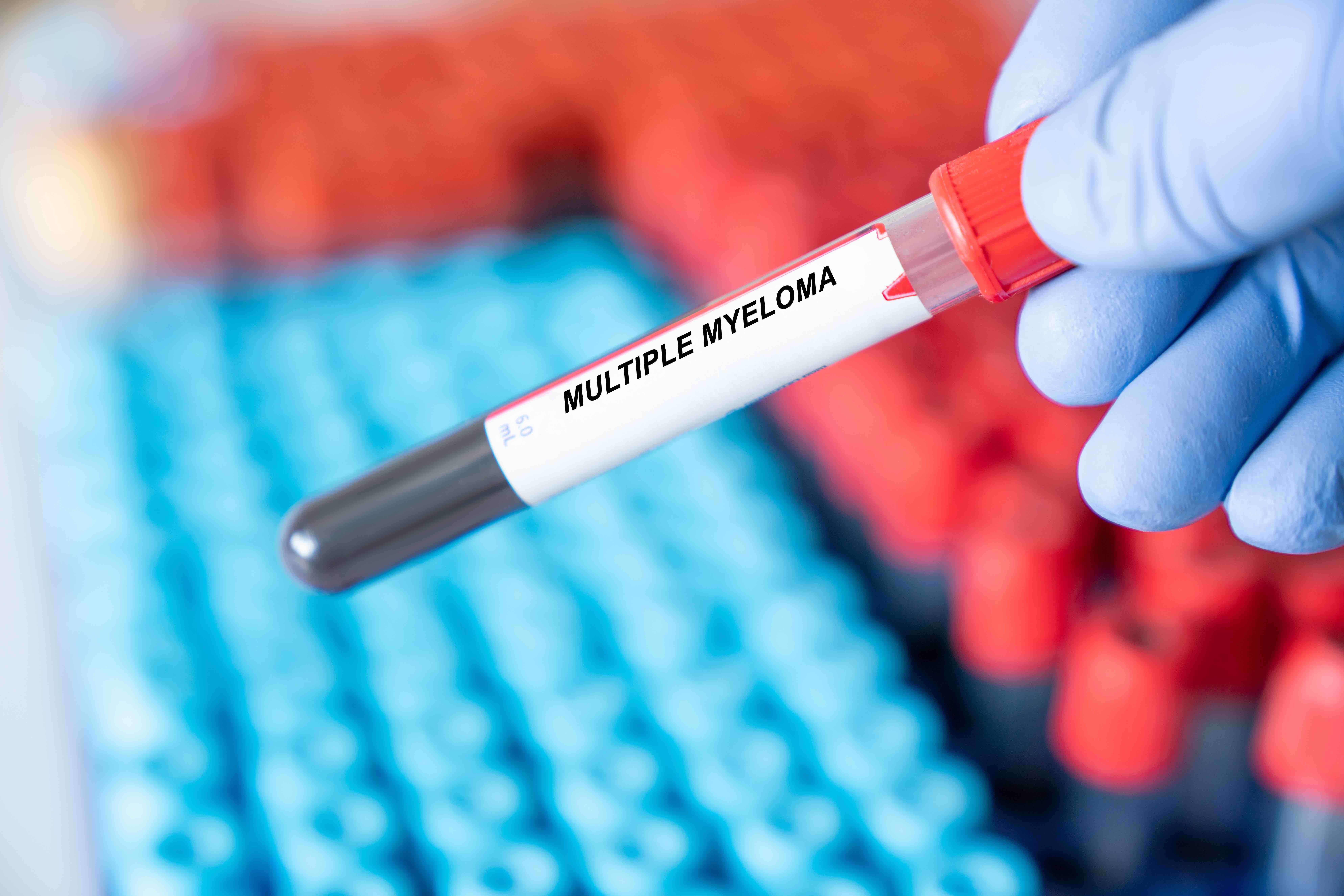- Center on Health Equity & Access
- Clinical
- Health Care Cost
- Health Care Delivery
- Insurance
- Policy
- Technology
- Value-Based Care
Older, Younger Patients With MM Show Similar Outcomes With Teclistamab
Real-world data presented at the 2023 American Society of Hematology Annual Meeting and Exposition showed similar toxicity profiles and outcomes among older and younger patients with multiple myeloma (MM) treated with teclistamab.
A poster presented at the 2023 American Society of Hematology Annual Meeting and Exposition showed the real-world toxicity profile and outcomes following treatment with teclistamab to be similar among patients above the age of 70 compared with younger patients.1
“This is the first and largest multicenter, retrospective analysis characterizing a real-world cohort of patients who received teclistamab. Based on our results, older age—defined as age more than 70 years—did not appear to affect response outcomes or progression-free survival,” lead author Danai Dima, MD, of the Taussig Cancer Institute, Cleveland Clinic, explained in a video presentation of the poster.
Multiple myeloma blood testing | Image credit: luchschenF - stock.adobe.com

Teclistamab, a novel B-cell maturation antigen (BCMA)-directed bispecific antibody, is approved for relapsed or refractory multiple myeloma (RRMM) after at least 4 prior lines of therapy.2
In the study, 5 academic centers within the US Myeloma Innovations Research Collaborative contributed data on 102 patients with RRMM who were treated with teclistamab before July 1, 2023. Of these patients, 32% (n = 33) were aged 70 or older, with a median age of 75 (range, 71-87) years. In the older cohort, 58% of patients had high-risk cytogenetics and 39% had extramedullary disease before treatment with teclistamab.
Overall, patients were heavily pretreated, with a median of 6 prior lines of treatment, and older patients were more likely to have worse performance status vs younger patients (45% vs 26% with an Eastern Cooperative Oncology Group performance status ≥ 2; P = 0.05). At a median follow-up of 3.2 months for the entire cohort, older and younger patients showed comparable overall response rates (ORR) and complete response rate or better (≥ CR) based on International Myeloma Working Group criteria.
Older patients showed an ORR of 70% compared with 61% among younger patients (P = .37). Among older patients, ≥ CR was 30% compared with 28% for younger patients (P = .8). Median estimated progression-free survival (PFS) was 5.4 vs 3.8 months in the older and younger cohorts, respectively (P = .61). Rates of cytokine release syndrome (CRS) were also similar. at 67% and 64% among older and younger patients, respectively (P = .7), and the same was true for immune effector cell–associated neurotoxicity syndrome (21% vs 11%; P = .17).
While grade 3 or 4 thrombocytopenia within the first 90 days of treatment was more common among older patients (27% vs 12%; P = .05), the authors noted that infection rates were similar between older and younger patients (33% and 26%; P = .46), as were hospital readmission rates (36% vs 23%; P = .16).
“For the most part, the safety profile appeared similar. However, patients older than 70 years were more likely to develop grade 3 and 4 thrombocytopenia," Dima said. "Importantly, the infection rates were not significantly different between the 2 groups, further supporting the broad use of teclistamab in older patients with relapsed/refractory multiple myeloma.”
References
1. Dima D, Sannareddy A, Ahmed N, et al. Toxicity and efficacy outcomes of teclistamab in patients with relapsed-refractory multiple myeloma (RRMM) above the age of 70 years: a multicenter study. Presented at: 65th American Society of Hematology Annual Meeting and Exposition; December 9-12, 2023; San Diego, CA. Poster 3330. https://ash.confex.com/ash/2023/webprogram/Paper180458.html
2. Tecvayli. Prescribing information. FDA; 2022. Accessed December 19, 2023. https://www.accessdata.fda.gov/drugsatfda_docs/label/2022/761291s000lbl.pdf
Quality of Life: The Pending Outcome in Idiopathic Pulmonary Fibrosis
February 6th 2026Because evidence gaps in idiopathic pulmonary fibrosis research hinder demonstration of antifibrotic therapies’ impact on patient quality of life (QOL), integrating validated health-related QOL measures into trials is urgently needed.
Read More
